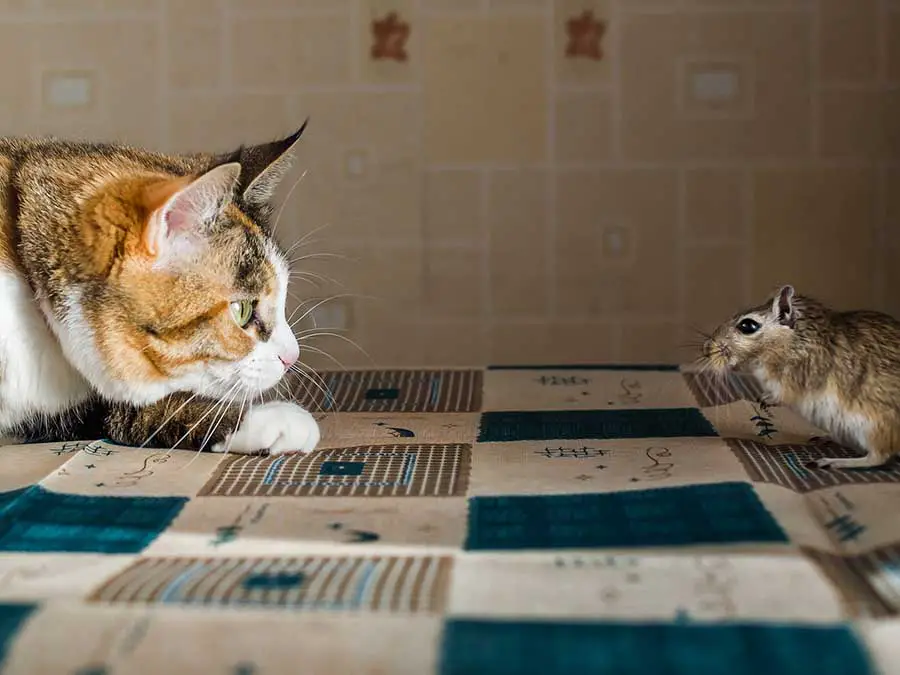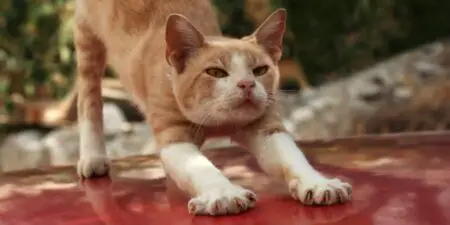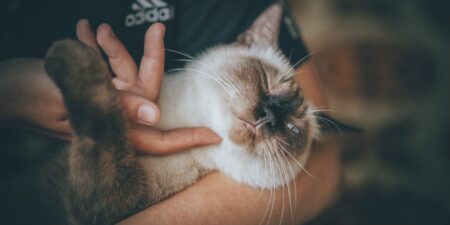Have you ever wondered if cats are really effective at keeping mice away? This question has been asked by many cat owners and those dealing with rodent issues. Let’s explore the answer and provide some insight into the relationship between cats and mice.
Cat in the Fight
Cats are natural predators, so their hunting instincts can play a role in deterring mice from your home. Their sharp senses, agility, and stalking behavior make them adept at catching their prey. However, not all cats have the same level of hunting prowess. Some breeds, like Siamese or Maine Coon, tend to be more skilled hunters than others.
Another factor to consider is the individual personality and temperament of your cat. Some cats may be more interested in hunting mice than others, meaning their presence alone may not be enough to keep the rodents at bay. In fact, some cats may not have any interest in hunting at all and could even be afraid of mice. A cat’s upbringing can also influence its hunting abilities; if a cat was not exposed to hunting behaviors during its early life, it may not be as effective in going after mice.
While your cat may be a skilled hunter, its effectiveness in keeping mice away also depends on the severity of your rodent problem. In cases of minor infestations, having a cat around might be enough to deter mice. However, if your home has a major rodent issue, it’s unlikely that your cat alone will be able to resolve the problem. Professional pest control services or other rodent control measures should be employed in such instances.
It’s also worth noting that even if your cat does catch mice, this does not guarantee that the rodents won’t continue to be an issue in your home. Mice can reproduce rapidly, so if the root cause of the infestation is not addressed, it’s only a matter of time before their numbers increase again.
Feline presence can also have a psychological effect on mice. The scent of a cat in the area may make the rodents feel threatened and prompt them to seek shelter elsewhere. However, this is not a foolproof method of deterring mice, as they may still enter your home in search of food or shelter.
Health Risks
Additionally, it’s important to consider the health risks associated with allowing your cat to hunt mice. Rodents can carry diseases like toxoplasmosis, leptospirosis, and salmonellosis, which can be transmitted to your cat through bites or ingestion. Not only can this be harmful to your cat, but it can also put your own health at risk if your cat contracts an illness from the mice.
To maximize your cat’s ability to deter mice, it’s important to keep your home clean and properly sealed, eliminating easy access points for rodents and reducing the availability of food sources. This, combined with your cat’s presence, may be enough to keep mice at bay.
Conclusion
So, do cats truly keep mice away? The answer is not black and white. While a cat’s hunting instincts and presence may help to deter mice, their effectiveness can vary based on factors like breed, personality, and the severity of the rodent problem. In any case, it’s always advisable to maintain a clean and well-sealed home to prevent rodent infestations and protect your cat from potential health risks.
Related Questions
1. How do cats naturally deter mice?
Cats are natural predators, and their presence alone can deter mice from entering an area. Mice have an innate fear of cats due to their evolutionary history, and the scent of a cat may be enough to keep them away. Additionally, cats possess exceptional hunting abilities, including stealth, speed, and agility, which make them effective at catching and controlling mice populations.
2. Are certain cat breeds more effective at keeping mice away?
While all cats have the innate ability to hunt, some breeds may be more inclined to exhibit this behavior. For example, the Siamese, Maine Coon, and American Shorthair are known for their strong hunting instincts. However, even these breeds may not be as effective if they have not been encouraged to develop their hunting skills or have become too domesticated.
3. What factors can impact a cat’s ability to control mice populations?
Several factors can impact a cat’s ability to control mice populations. These include the cat’s age, health, experience, and upbringing. Younger and healthier cats are more likely to be effective hunters. Additionally, cats raised in environments where they had the opportunity to develop their hunting skills are more likely to be successful in catching mice.
4. Can cats coexist with mice?
Surprisingly, there have been instances where cats and mice coexist in the same environment. Some cats may befriend mice or simply not see them as prey. This can occur when a cat was not exposed to hunting behaviors during its upbringing, or it may simply have a more docile personality. In these situations, a cat may not effectively control mice populations.
5. What other methods can be used in conjunction with a cat to keep mice away?
Although cats can be effective deterrents for mice, it’s important to implement additional methods to keep your home free of rodents. These may include maintaining a clean environment, eliminating potential food sources, sealing any holes or openings to prevent mice from entering your home, and using traps or other pest control methods.
Does the Presence of Cats Deter Mice? (Video)
"In ancient times cats were worshipped as gods; they have not forgotten this."
-- Terry Pratchett





